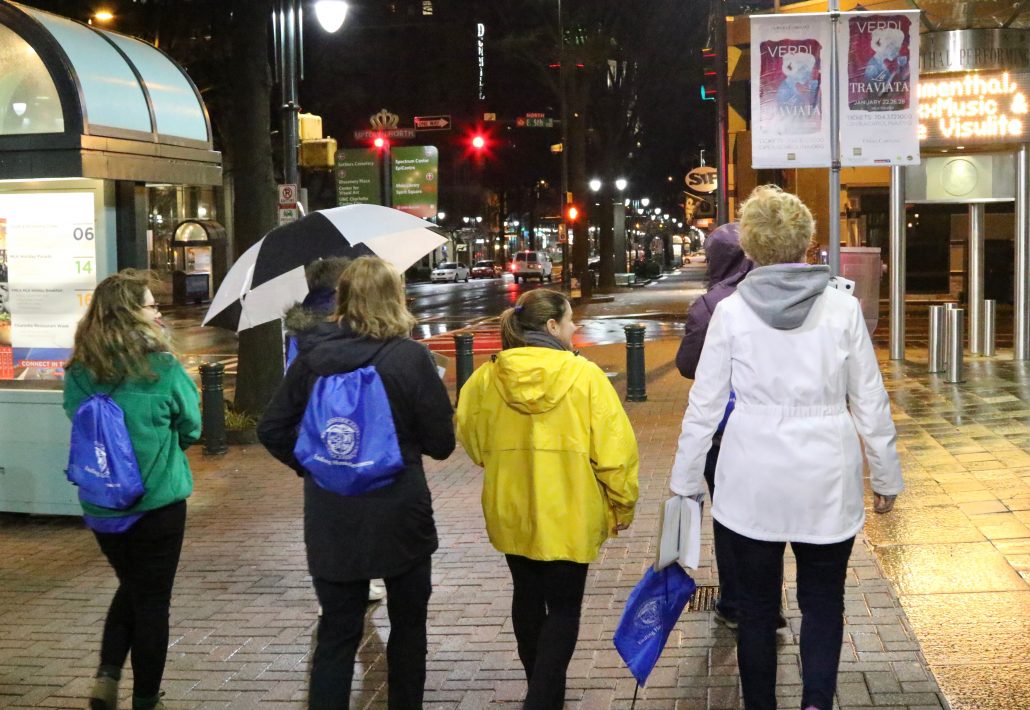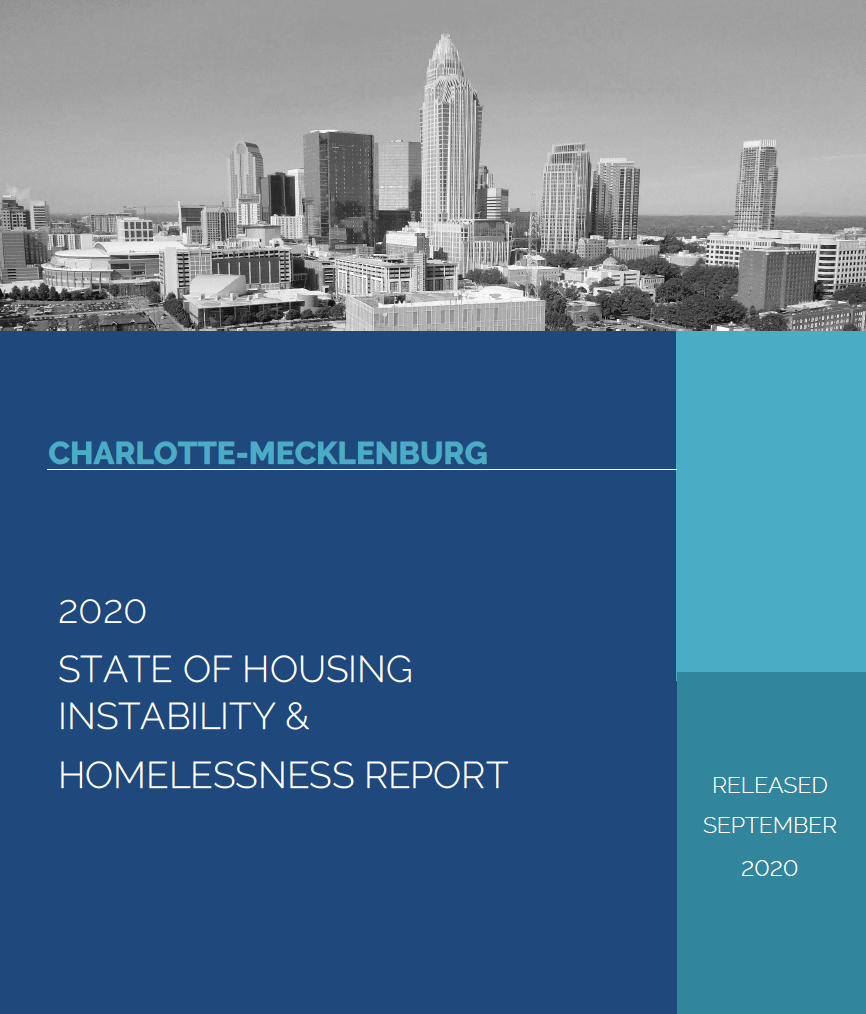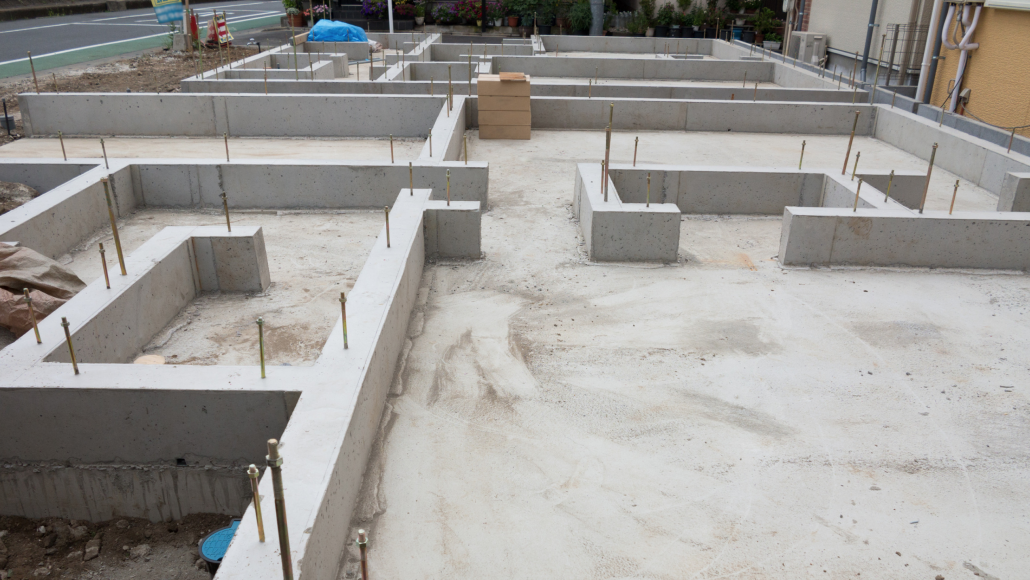Courtney LaCaria
Housing & Homelessness Research Coordinator
Mecklenburg County Community Support Services
During 2020, the Charlotte-Mecklenburg Housing & Homelessness Dashboard published 52 blog posts covering an array of topics, including the Point-in-Time Count; new report releases (and what they mean for the community); and local data and trends information. Throughout the year, more than 12,000 individuals accessed the Dashboard; there were over 36,000 pageviews as a result.
Two all-new series were developed in response to COVID-19, focusing on how communities like Charlotte-Mecklenburg can effectively address housing instability and homelessness during (and after) the pandemic. One of these (which includes the most-viewed blog post for 2020) covered innovative stopgap efforts that can be transformed into long-term “business-as-usual” solutions. The second pandemic-oriented series took a deeper dive into the components necessary for communities to develop a successful housing, public health, and economic recovery framework to effectively respond to COVID-19.
In case you missed any of it, this final 2020 blog post is dedicated to the top ten posts (as measured by discrete views) from the year. Below are summaries; links to the “top ten” posts; and a final “so, what” for Charlotte-Mecklenburg to consider as the calendar is turned.
THE TOP TEN BLOG POSTS FROM 2020
Long-term Intervention: Eviction Prevention (March 25)
This was the second post in an eight-part series, addressing questions like: “What short-term, community responses can be transformed into long-term, systemic solutions? Which immediate interventions can effectively and efficiently address the structural issues that lead to housing instability and homelessness? What permanent changes are needed to produce a healthier community in the future?” During a period when eviction moratoriums were first set to expire, this post highlighted examples of how to both prevent evictions and provide long-term financial support for households to sustain housing. With $70 billion owed by U.S. renters in combined back rent, utilities, and late fees as of January 2021, this message has never been more resonant.
Housing Counts: Point-in-Time Count and the Local Questions, Local Response (January 29)
This post provided an overview of the Point-in-Time Count, which is a required activity of Continuums of Care, as well as the 2020 local survey questions and how the information can be used to inform decision-making in Charlotte-Mecklenburg. The January 29 blog is expanded upon by another Point-in-Time Count post in October 2020. The October post shares the findings from the 2020 local survey questions (and what they mean for Charlotte-Mecklenburg); and sheds light on what’s next for the 2021 Point-in-Time Count.
Local Housing Data Updates (Latest November 4)
For over a year, Mecklenburg County Community Support Services has been regularly updating the One Number on the Housing Data Snapshot, a hub for the latest numbers related to housing and homelessness in Charlotte-Mecklenburg. The One Number is generated from a By-Name List from the Homeless Management Information System (HMIS); it captures the number of people enrolled in Emergency Shelter, Transitional Housing, Street Outreach, and Coordinated Entry projects in HMIS. This tally includes both sheltered homelessness and a portion of the individuals experiencing unsheltered homelessness in Charlotte-Mecklenburg. To mark the one-year anniversary of the One Number, the November 4 blog post shared information about updates coming to the One Number, and why these changes matter for Charlotte-Mecklenburg. The updates included a complete refresh of all historical One Number data; and new features that will allow a breakdown of One Number data by race and ethnicity.
Estimating Future Homelessness (November 18)
With the deadline for spending CARES Act dollars looming, this blog post spotlighted a new tool from the U.S. Department of Housing & Urban Development (HUD) to help communities estimate future homelessness (and thus, understand how they can best prepare for the likely growth in those numbers). In addition to covering how the tool can be used in Charlotte-Mecklenburg, a link is provided to an online spreadsheet with local data.
The Rent is (Past) Due: A Look Ahead to January 2021 (December 3)
This post outlined then-newly underway and other prospective efforts by the federal government to address housing instability and homelessness after January 20, 2021; and provided an update on the latest estimates of associated costs if nothing changes by the end of the year. Looking upstream at prevention, UNC Charlotte Urban Institute projected the cost to cover rent for households at risk of eviction (10,535) ranges from $2.8 million (covering 30% of rent) to $9.3 million (covering 100% of rent) each month. This means that spending between $34 million and $112 million each year would keep struggling (but already housed) households in Charlotte-Mecklenburg from falling into homelessness.
Home4Good Framework Update: Housing & Economic Recovery in response to COVID-19 (October 28)
This blog post provides an update on the efforts of the Home4Good Framework Workgroup, which oversees the local adaptation and implementation of the Home4Good Framework recommendations. The Charlotte-Mecklenburg Continuum of Care (CoC) Governing Board adopted the Home4Good Framework in May 2020. The Home4Good Framework has six areas of impact: Coordinated Entry; Prevention; Unsheltered Homelessness; Sheltered Homelessness; Permanent Housing; and Strengthening Systems.
2020 State of Housing Instability & Homelessness Report Release Series (September 24 – October 14)
Following the release of the 2020 State of Housing Instability & Homelessness (SoHIH) report on September 24, 2020, the Building Bridges blog published three posts focused on different components of the report. The first post covered the first three themes from the SoHIH report, related to access and availability of permanent, affordable housing; the second post focused on the other themes of the report, related to the role that permanent, affordable housing plays in ensuring individual and public health; and the third post completed the series by synthesizing information from the report with current data and trends related to COVID-19, and highlighted examples of new solutions from other communities which may be relevant to addressing housing instability and homelessness locally.
Housing Counts: 241 Days to Permanent Housing (March 4)
Pre-pandemic, this post featured the release of a new metric on the Housing Data Snapshot: the average length of time it takes for individuals to access permanent housing in Charlotte-Mecklenburg. The post covers the “ins and outs” of the new metric, why it matters, and what it means for Charlotte-Mecklenburg.
Public Health & Economic Recovery Response Framework Series (May 27 – June 24)
This five-part blog series was released after an infusion of public and private funding at local, state, and federal levels in response to COVID-19. The $2 trillion Coronavirus Aid, Relief and Economic Security (CARES) Act, which was passed by Congress on March 27, allocated more than $12 billion to housing and homelessness resources. The series introduces (and takes a deep dive into) a new tool for communities like Charlotte-Mecklenburg to consider adopting and implementing to maximize these financial resources to both flatten the curve and best prepare for long-term economic recovery.
Summer Reading 2020: “Top Five” List for Learning more about Housing Instability & Homelessness (August 5)
This summer blog post provided a “top five” reading list to learn more about housing instability and homelessness, including a brief overview; why you should read the report; and what each item listed means for Charlotte-Mecklenburg. These “top five,” still relevant heading into 2021, share housing solutions to address the gaps between housing cost and what households can afford.
SO, WHAT
Hindsight is (always) 20/20? It can seem that the sheer act of reflecting upon the past year is painful. Taking stock of what has come (and gone) is complicated. It may feel easier just to look ahead at the promise of a fresh start in 2021. Last week’s blog post was dedicated to progress, with a focus on what’s happening at the system level to address housing instability and homelessness in Charlotte-Mecklenburg. The post also offered specific ways that individuals can make a difference in this vital work of ending and preventing homelessness in the community.
What happens if we jump ahead, with no critical assessment of our work during 2020, difficult as it may be? Margaret Wheatley, a writer and management consultant focused on systems change, states, “Without reflection, we go blindly on our way, creating more unintended consequences, and failing to achieve anything useful.” While we may be able to move forward, we will never be able to achieve real change without also spending time taking stock. What did we do in 2020 that worked? What did we do differently that worked? Of those new, different things, what can we continue? Even if we can, should we? What do we need to stop doing now, and/or forever?
While housing instability and homelessness certainly predate the pandemic, communities across the United States have learned a particularly tough lesson: these are no longer simply a housing issue for just one person, they are a public health issue with implications for the entire community. COVID-19 has exacerbated existing disparities while also exposing the “hidden homeless.” Fortunately, it has also forced the public and private sectors into action.
To protect public health, the choice to “fix” the pre-existing conditions of housing instability and homelessness is up to each of us. To all of us. In order to get where our community wants to go, we all must take inventory of where we are. In these final hours of 2020, perhaps the most important step everyone can take is simply to pause, and to reflect. This can help lay the foundation for the community to tackle both what was already there, as well as whatever comes our way in 2021.
SIGN UP FOR BUILDING BRIDGES BLOG
Courtney LaCaria coordinates posts on the Building Bridges Blog. Courtney is the Housing & Homelessness Research Coordinator for Mecklenburg County Community Support Services. Courtney’s job is to connect data on housing instability, homelessness and affordable housing with stakeholders in the community so that they can use it to drive policy-making, funding allocation and programmatic change.












